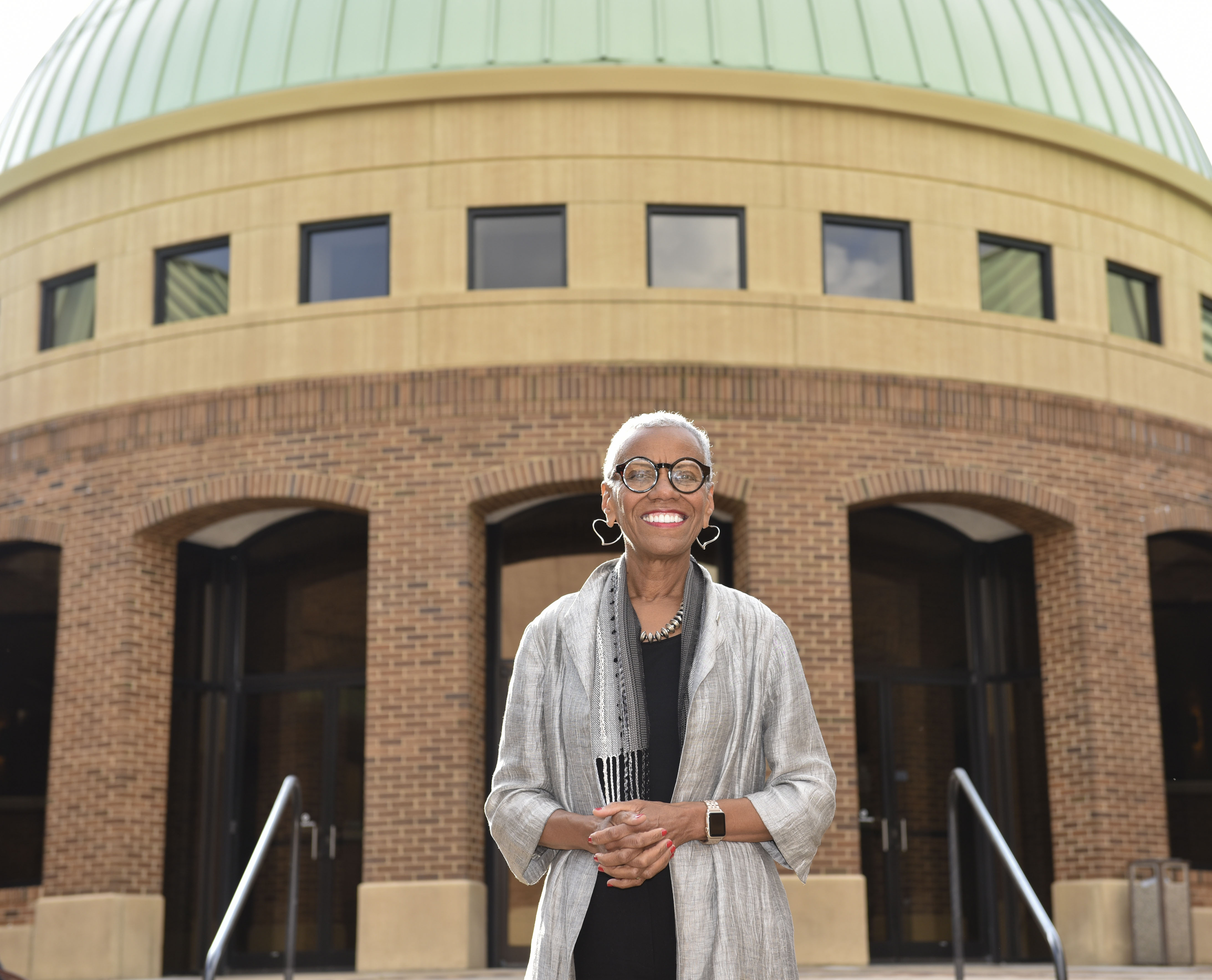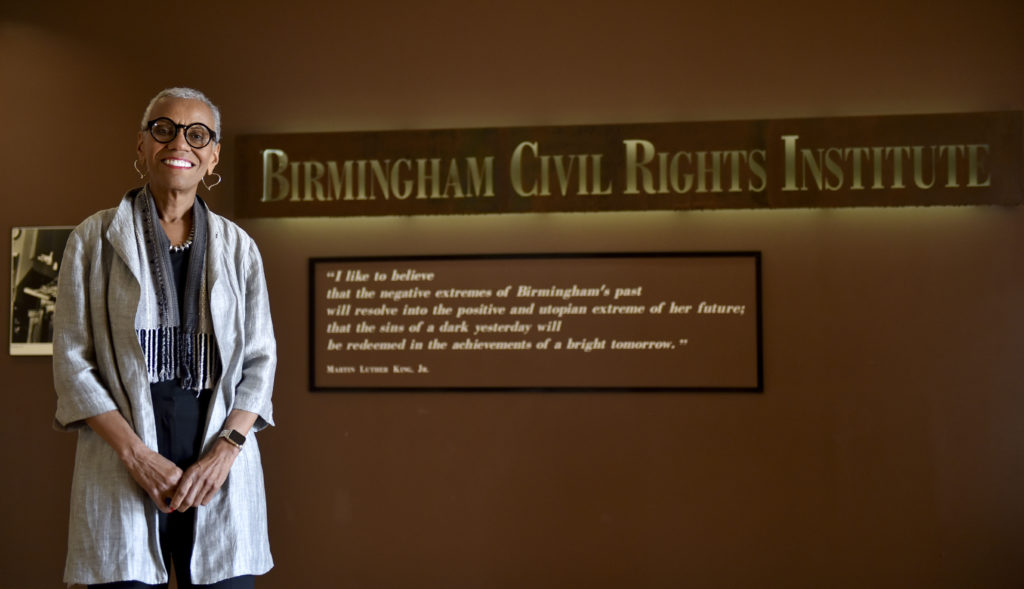
By Anita Debro
For the Birmingham Times
It’s been two years since Andrea Taylor joined the Birmingham Civil Rights Institute (BCRI) as president and CEO. During that time, her challenge has been to keep the institute moving forward and ensure that it stays relevant.

The BCRI, which opened in November 1992, is part of the Birmingham Civil Rights National Monument and an affiliate of the Smithsonian Institution. It reaches more than 150,000 individuals each year through its award-winning programs and services. Since its opening, more than two million visitors have come through its doors.
Taylor has said the BCRI’s mission is to enlighten each generation about civil and human rights by exploring our common past and working together in the present to build a better future. She wants to attract more people to the institute to share Birmingham’s history and to continue a current dialogue about how that history relates to today.
As the BCRI celebrates its 25th anniversary Taylor recently discussed the challenges, goals, and today’s political climate with The Birmingham Times.
What challenges did you face when you took the job in 2015?
“Any institution that seeks to fulfill a mission of education, awareness, and outreach has the challenge of achieving a high standard of excellence and also the challenge to stay relevant. Fifty years have gone by since the civil rights movement, and the constant challenge is to stay relevant for today’s time. It requires a number of elements that need to be in place. You have to have an eye to the future. You can lose attendance over time, and the challenge is to constantly look at your programs and purpose to remain connected to where people are today.”
What goals have you set for the Institute?
“We want to facilitate excellent programs. Since its founding in 1992, the institute began collecting oral histories. Now, there is some urgency for that material. We have 300 hours of interviews of foot soldiers; it is a robust and rich collection from eyewitnesses, but we have not had resources to put them in digital format to use in exhibits. We recently received a grant to allow us to digitize and incorporate those interviews into gallery exhibits. We hope to unveil photographic and multimedia exhibits of the foot soldiers’ profiles in courage.”
How do you go about setting the institute apart from other organizations that honor the civil rights movement and the black experience?
“We are both similar and dissimilar to others. A year after I started this job, we found ourselves celebrating the opening of the Smithsonian Institution’s National Museum of African American History and Culture. The BCRI has been a Smithsonian Institute affiliate since 2007, and we were very excited about the opening of that museum. It sent a message across the nation and the world about the importance of our history and culture, and it really affirmed the importance of having the BCRI. We are excited to be a part of a larger system of museums. We share the same architect as the national museum, Max Bond, and we are located in a place where the actual history we represent occurred. We have a terrific history, we are among the largest of the institutes, and we have a powerful and important story to tell.”
How do you think the BCRI fits into today’s landscape of escalating racial divisiveness in the wake of recent events, such as Charlottesville?
“Almost everyone would agree that this is a very challenging and troubling time in our history. We can play a very important role by providing a place where people can gain factual information and share dialogue; by providing a place where people have an opportunity to interact with different people by building coalitions; and by providing a place where people can continue to learn, share, and grow in an increasingly complex society.”
What impact will the National Monument designation have on the daily life of the institute?
“It is a new experience for the BCRI, and we are still learning what that designation means. It has prompted us to go through an in-depth strategic-planning process. We have almost immediately begun to shift into a different gear. For example, we are looking to double the number of visitors by 2020. We are looking at how are we can take full advantage of all the attractions within the National Monument designation, and how we can be relevant and meaningful. The designation has reaffirmed for us the importance of the BCRI and how important Birmingham is to national history. I am very heartened by the interest and even larger role we might play in sharing that history. We have already had two million visitors since we opened, and now with the designation we have the potential to achieve even greater attendance. We are looking at how we can continue to improve programs and services. And we will focus on excellence in every aspect.”




